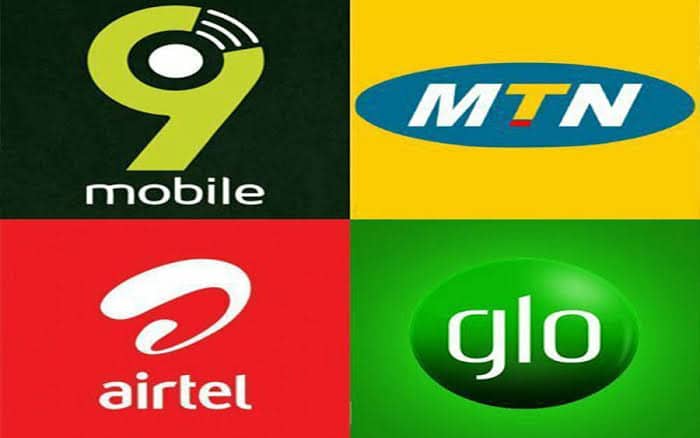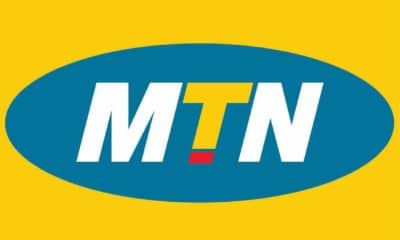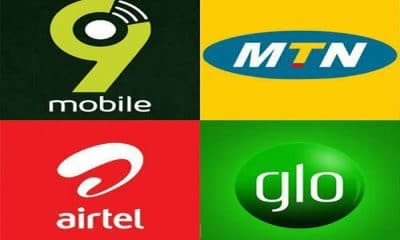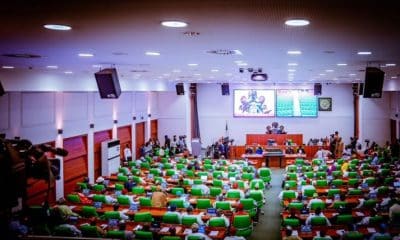Business
NCC Approves New Tariff Plans For MTN, Airtel, Glo, Other Telcos

The Nigerian Communications Commission (NCC) has approved new tariff guidelines for telecommunication (telcos) operators to enhance transparency, improve consumer understanding, and foster fair competition among the commission licensees.
The commission also mandated all telcos in the country to limit the number of available tariff plans to a maximum of seven.
Additionally, the number of bundles offered per operator has been reduced to 100, with the directive that no subscriber can be on more than one tariff plan at a time.
The NCC defines a tariff plan as a structured pricing scheme outlining the charges and conditions under which telecommunications services are provided to subscribers.
This information was disclosed in a document posted on the NCC’s website and signed by the Executive Vice-Chairman of the commission, Aminu Maida, on Saturday.
The document read in part, “The number of tariff plans offered per operator is limited to seven, and the number of bundles offered per operator is limited to 100.
“There are no limitations to the number of add-ons a subscriber can opt into. However, each operator must have in place a mechanism that informs subscribers of the number of add-ons they have at the point of purchasing another add-on. Subscribers must be able to check (via USSD string, SMS) the number of add-ons purchased.”
It is reported that the two leading telecommunications companies in the country are currently providing a greater number of tariff plans than what is specified in the directive.
MTN offers eight tariff plans, Etisalat has seven, Airtel provides 10 plans, and Glo presents its customers with four tariff plans.
In the ‘Guidance for the Simplification of Tariffs’ document, the NCC emphasized the importance of complete disclosure of all tariff components and terms, requiring telcos to guarantee that all marketing and promotional materials are easily understood.
Furthermore, the NCC highlighted operators’ need to focus on consumer education and transparency in all communications to empower subscribers to make well-informed decisions.
The commission said, “Develop and submit detailed migration plans to transition subscribers smoothly to new tariff plans, without loss of service quality or benefits.
“All promotional elements must receive prior approval from the Commission and should be offered as standalone products with clear terms and validity periods.
“Submit comprehensive periodical reports detailing all active tariff plans, bundles, promotions, and Quality of Service (QoS) metrics.
“The guidance shall take effect on 29 July and will remain valid and binding on licensees until further reviewed by the commission.”
According to the commission, all promotional elements will be removed from tariff plans and offered as standalone promotions, “subject to its prior approval, time limits, QoS/capacity requirements, and adherence to full disclosure requirements.”
The NCC also announced that operators can continue their bonus-led tariff plans until December 3.
During this time, they are expected to inform and transition all subscribers to the more straightforward tariff plans.
It said, “Operators can choose to maintain only one bonus-led new subscriber acquisition plan. However, a new subscriber can only be retained on such a plan for a limited period of six months before being migrated to a standard tariff plan of their choice.
“Where a subscriber fails to migrate after being prompted in accordance with the applicable business rules, the subscriber will be reverted to the default tariff plan.
“Tariff elements of promotional activities/new acquisition plans referred to above will only be allowed under the following conditions: bonuses must comply with the commission’s price floor and price cap.
“In addition, actual depletion rates on bonuses must not exceed the price or fall below the price floor for voice services. The bonus allowances (voice/data/SMS) must be stated in naira terms and minutes/seconds for voice, GB/MB
of data and number of SMS.
“Operators must fully disclose the above in their advertising materials.”
The telecommunications regulator also said add-on subscriptions must be optional for subscribers.
It reads, “Subscribers should be enabled to purchase any add-ons of their choice while remaining on their existing tariff plan and/or bundle.
“A free add-on shall be treated as a promotional offering and must be approved by the Commission by the guidelines on promotional advertisements, 2023.
“Additionally, in line with the Commission’s existing regulatory instruments, service providers must have evidence of informed consent from the subscriber to accept the add-on.”
In the directive issued on Saturday, the NCC said there are penalties for non-compliance with the guidance, adding that operators must align their offerings within 90 days from the date of issuance.
It added, “Transition plans for existing tariffs must be submitted on or before 12 August 2024. The Commission will review and respond to submissions within 10 working days.
“Tariff approval and modification applications must include comprehensive disclosure forms detailing all aspects of the tariff.
“Non-compliance will result in penalties, including fines, suspension of tariff approvals, or other regulatory actions as set out in the Act, related regulatory instruments and the subsisting Enforcement Process Regulation.”
The NCC has mandated that operators must inform subscribers of any modifications to their tariff plans, including transitions to new plans, with a minimum notice period of 30 days.
The commission emphasized that “notifications should be explicit, detailing the reasons and advantages involved.”
In a related development, operators have refuted assertions regarding the commission’s approval for a tariff increase.
A message received by our correspondent from Gbenga Adebayo, Chairman of the Association of Licensed Telecom Operators in Nigeria, stated unequivocally, “Telecommunications companies have not received any authorization for a tariff review.”
Furthermore, inquiries made via calls and text messages to various lines by our correspondent confirmed that the rates remain unchanged.












